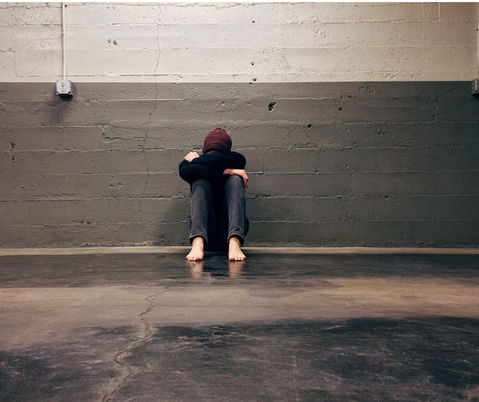OCD and “Unacceptable” Intrusive Thoughts : You are Not AloneWritten by Johanna Younce, MA
When most people think about Obsessive-Compulsive Disorder (OCD), they think of the stereotypical symptoms: needing everything to be perfectly organized or “just right” and fear of contamination. While these are valid and common presentations of OCD, there are other types of symptoms that are less often discussed. One of these symptom types is the fear of unacceptable thoughts or repugnant obsessions, which feel incredibly scary and threatening to people with OCD. This type of OCD can cause an immense amount of shame and fear, and I believe we need to discuss it more openly to decrease the shame and give less power to these thoughts. What does “unacceptable thoughts” mean? This type of OCD involves sexual, aggressive, and religious/moral obsessions. These obsessions involve very taboo thoughts that are hard to talk about, even with people who we are closest to. Many people with OCD have these unwanted, intrusive thoughts and think they are the only ones. However, research has shown that about 94% of people experience intrusive thoughts. That’s almost everyone! Almost every single person has intrusive thoughts from time to time. It is extremely common; People just don’t talk about it because it is so taboo and uncomfortable. So, wait, if so many people have intrusive thoughts, why do only some people have OCD? Thank you for asking; That is an excellent question. The difference is that people with OCD place an enormous amount of meaning on and responsibility for these thoughts. In other words, they interpret the thoughts differently. When most people experience unacceptable intrusive thoughts, they brush them off and recognize them as random and meaningless. People with OCD often think that having the thoughts must mean that they are terrible, awful people. But this simply isn’t true! The fact is, we cannot control what thoughts come into our heads, and sometimes the thoughts are taboo and uncomfortable, and that is ok. The same goes for dreams: Having a dream about something does not mean it is something you want to happen. To further the cause of normalizing unacceptable intrusive thoughts, let me share some thoughts (in the form of either words or images) that I have had or have heard from others:
Reading this list may have made you uncomfortable. You may have even found yourself judging either yourself or others for having these thoughts. The important thing here to remember is that these thoughts are intrusive, meaning they come into your mind without intending them, and they are unwanted, meaning they are not fantasies or desired outcomes. Just having these thoughts pop into your mind does not mean that you want them there and that you like to think about them. Fantasies are things that you enjoy thinking about (and every part of you enjoys it; there is not one part that feels anxious or thinks it is wrong). My random thought of myself driving off the highway this morning is meaningless and it does not worry me because I know that thoughts are just thoughts. I hope this has helped you feel less alone in your more taboo thoughts or dreams. Almost everyone has them, and they are not meaningful. You are not alone, and you are not an evil person. Remember, thoughts are just thoughts. To hear more about one individual’s experience with unacceptable obsessive thoughts, check out NPR’s Invisibilia Podcast’s Season 1, Episode 1: “The Secret History of Thoughts.” To learn more about intrusive thoughts and OCD, visit the International OCD Foundation website. If you feel you would benefit from talking with a clinician who specializes in OCD call OakHeart at 630-570-0050 or email us at [email protected]. Comments are closed.
|
OakHeart
|
- Home
- Counseling
-
Specialties
- Depression
- Bipolar Disorder
- Anxiety Disorders >
- Obsessive-Compulsive Disorder (OCD)
- Eating Disorders
- Grief and Bereavement
- ADHD
- Maternal Mental Health
- Infertility, Miscarriage, and Neonatal Loss
- Domestic Violence and Sexual Assault
- Posttraumatic Stress Disorder (PTSD) >
- Trauma
- Non-Suicidal Self-Injury (NSSI)
- Substance Use Disorders (SUD)
- Anger Management
- Insomnia
- Divorce Recovery
- Relationship Concerns and Couples Counseling
- Self-Esteem
- Therapy for Therapists
- LGBTQA+ Support
- Faith-Based Counseling
-
Providers
- Erin Mitchell
- Pamela Heilman
- Katie Sheehan
- Hillary Gorin
- Lee Ann Heathcoat
- Adam Ginsburg
- Megan Noren
- Sarah Williams
- Christina Bieche
- Bridgette Koukos
- Laura Lahay
- Kate Nash
- Anna Perkowski
- Alma Lazaro
- Leah Arthur
- Marissa Vogrin
- Erin Blair
- Amy Jakobsen
- Lizzy Lowe
- Tony Fasano
- Gerry Lawm
- Vanessa Osmer
- Kat Harris
- Locations
- Contact
- Treatments
- Employment
- FAQ and Notices
- OakHeart Blog
- Administrative and Leadership Team
- Mental Health Resources
- Divorce Mediation
- Professional Consultation
|
|




